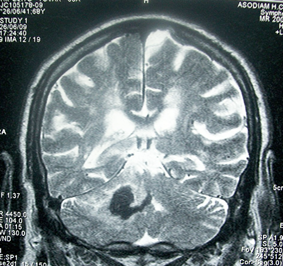
Oneida Nation Comprehensive Health & UW-Madison Partner for Groundbreaking Stroke Study
Oneida Nation’s Comprehensive Health Division and theUniversity of Wisconsin–Madison Stroke Team are partnering on a groundbreaking year-long study to identify the risk factors for stroke in the Native American population.
“Stroke is one of the leading causes of disability and death among Native Americans,” explained by Dr. Robert Dempsey, Javid professor, chair of neurosurgery and co-director of the comprehensive stroke program for UW-Madison. “While much is known in general about the causes of stroke, there are a lot of unknowns when it comes to stroke among Native Americans.”
“We will look at whether active participation in social support activities, culturally based programs, as well as food sovereignty programs modify someone’s risk factors for stroke,” stated Amanda Riesenberg, Oneida Nation stroke prevention wellness coach. The study will also look at how historical loss and stress impact the risk of stroke. “This type of culturally specific approach has not been done before for the Native American population,” Riesenberg added. “So, the study could yield incredibly useful information and findings.”
Approximately 50 Native Americans, between the ages of 35-55, are currently participating in the study and more participants are needed. All study activities are conducted on the Oneida Nation Reservation. Participants will do a fasting blood draw, carotid ultrasound exam, a cognitive test as well as a meeting with the head of neurological surgery at UW-Madison to discuss their health history. Those selected for the study will be able to work with a certified health and wellness coach during the study timeframe.
“We are very excited to have this type of study conducted in our own backyard,” said Debbie Danforth, Oneida Comprehensive Health Division director. “It’s an opportunity to help current and future Oneida Nation tribal members improve their health and quality of life.”
If you are Native American and would like to participate in this study, contact Amanda Riesenberg, stroke prevention wellness coach at 920-490-3984 or via email at [email protected].
[Photo Credit: Bobjgalindo – GNU Free Documentation License – https://commons.wikimedia.org/wiki/File:Head_MRI_stroke.JPG]

